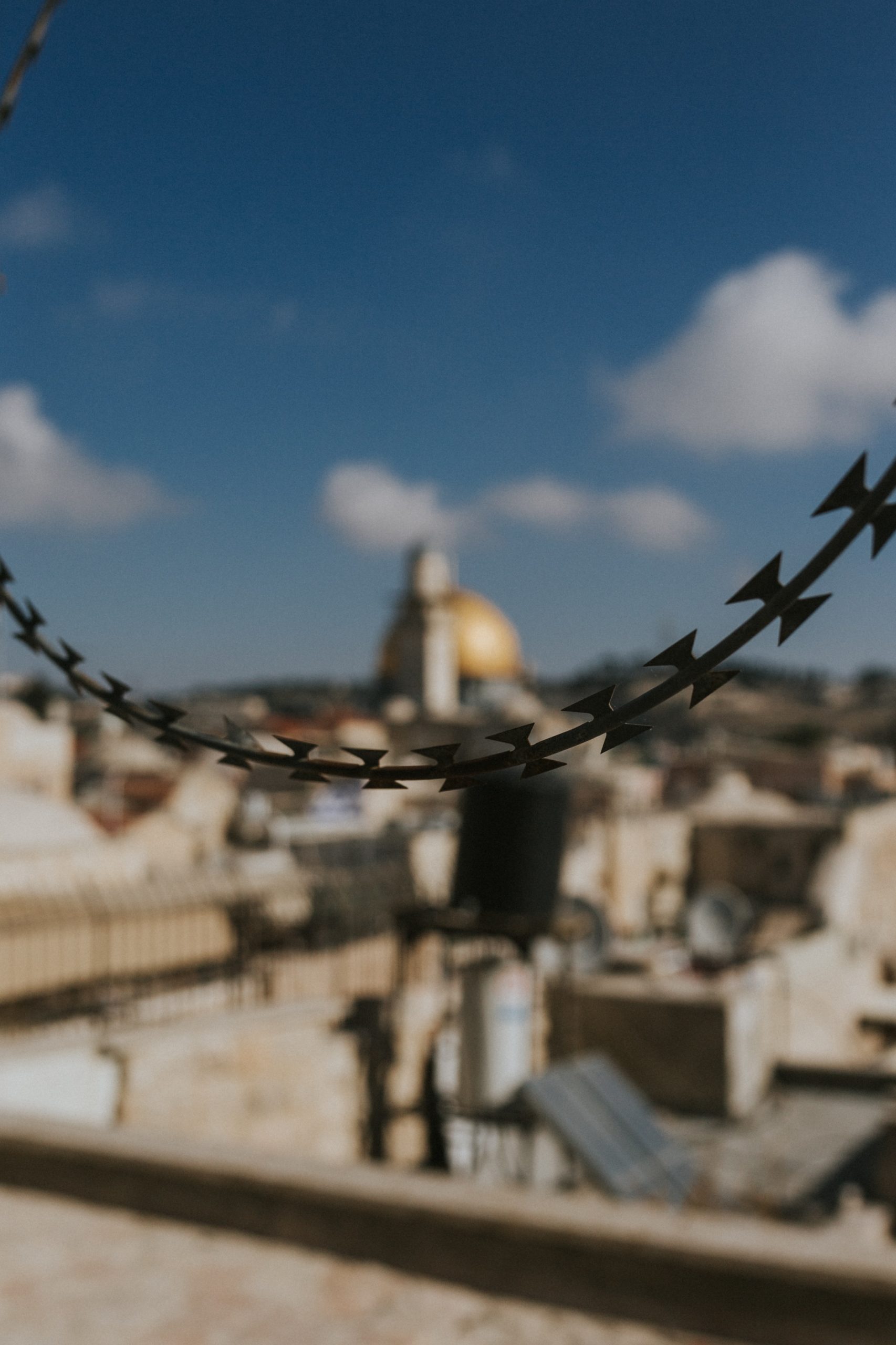My first weeks as an undergraduate teenager coincided with the start of the Second Intifada in September 2000, in which Palestinians rose in mass protests against Israeli occupation and the failure of the US-brokered peace process. Before social media and smartphones, I would mostly read the news on our school computers to stay up-to-date on events as they unfolded. Those early images of Palestinians armed with rocks against Israeli tanks left an indelible mark on my activism and motivated me to enroll in every Middle Eastern history and politics class the university had to offer. One year later, the world was shaken by the attacks on September 11, 2001, soon followed by the Global War on Terror and the invasions of Afghanistan and Iraq. For many Americans of my generation, these events shaped our political outlook, aversion to war, and belief in social justice at home and abroad.
Over the course of my studies, I soon learned that the history which had sparked the 2000 Palestinian uprising was even more distressing than the images that haunted me. Though it was often presented as a two-sided “conflict” or confrontation over land and resources, this narrative omitted the power imbalance and the fact that one side had the backing of the most powerful country in the world. And one might ask, why — with so much inequality and devastation in the world — is this particular issue so painful to watch.
First, because what amounted to a decades-long project of conquest took place right as the international community established a rules-based order, which was intended to prevent precisely such a project from ever coming to pass again. And second, and more troubling, because the United States, my country, aids and safeguards this injustice.
GOING AGAINST THE ORDER IT ESTABLISHED
Of course, in the wake of World War II and the heinous atrocities that had befallen the Jewish people in Europe, it is easy to understand the need and desire to protect them and rightly proclaim “never again.” In fact, it was those crimes against humanity that pushed the world to create an international order and law that, at its core, is meant to prevent the brutality of war and uphold the promise of sovereignty and self-determination of the modern world. However, where the United States may have helped Jewish people, it has failed the Palestinians. Replacing one group’s suffering with that of another is not a solution, it is a tragedy.
It is our tax dollars that fund these crimes, it is our government that protects its perpetrators, which makes it our responsibility to defend Palestinians.
While US lawmakers and officials often use the rhetoric of human rights and a rules-based international order when criticizing our adversaries, or to justify sanctions and war, the vast history of our hypocrisy and double standards in foreign policy fly in the face of that very order. In the case of Israel, the United States outright rejects international mandates by undermining global bodies like the International Criminal Court and abusing its UN Security Council veto power to protect Israel from condemnation and accountability.
When the well-respected human rights organization, Human Rights Watch, recently released its 213-page report confirming that Israel’s actions constitute apartheid and crimes against humanity, the State Department rejected their findings. Furthermore, the United States provides material support to Israel, which is the number one recipient of US aid in the world, receiving billions of US tax dollars per year in military aid. In addition to its material and legal assistance, the United States reiterates its support for Israel as a central tenet of its foreign policy in US political discourse. American officials across the political spectrum commonly discuss the “ironclad” relationship between the United States and Israel, in a political atmosphere that makes questioning that relationship tantamount to blasphemy. In some ways, whether you are a politician, university professor, journalist or commentator, it is easier to be critical of the United States than Israel.
IT’S TIME FOR ACCOUNTABILITY
This unwavering support continues despite Israel’s increased far-right extremism, anti-Palestinian language of Israeli government officials, and brute violence carried out against Palestinians, which is well-documented by human rights organizations and activists. Even now, as we have witnessed video after video from Palestinians documenting their abuse at the hands of Israeli security forces, horrific scenes of police brutality, and attacks on worshipers inside the Al Aqsa mosque, the Biden administration has shown no willingness to condemn or hold Israel accountable, and a majority of members of Congress continue to support unconditional aid to Israel.
It is our tax dollars that fund these crimes, it is our government that protects its perpetrators, which makes it our responsibility to defend Palestinians. If the United States government refuses to condemn or take action against Israeli apartheid and crimes against humanity — choosing an ideological fixation over defending the rules-based order and human rights it claims to espouse — then we, the American people, must hold our own government accountable to those values.
If we truly believe in an international order that breeds peace, we must act as even-handed brokers. In fact, it should be easier to hold our supposed allies responsible than our adversaries. Accountability is not punishment. The world is certainly filled with injustice, and our ability to combat it is most often limited to our own backyard. But in the case of Palestinians, our role in sustaining that injustice gives us a unique opportunity to have an impact somewhere besides the United States.
Assal Rad is a Senior Research Fellow at the National Iranian American Council and author of NIAC’s Human Rights Tracker, documenting human rights abuses in Iran. She received her doctorate in history at the University of California, Irvine. The opinions shared here reflect the views of the author.




















